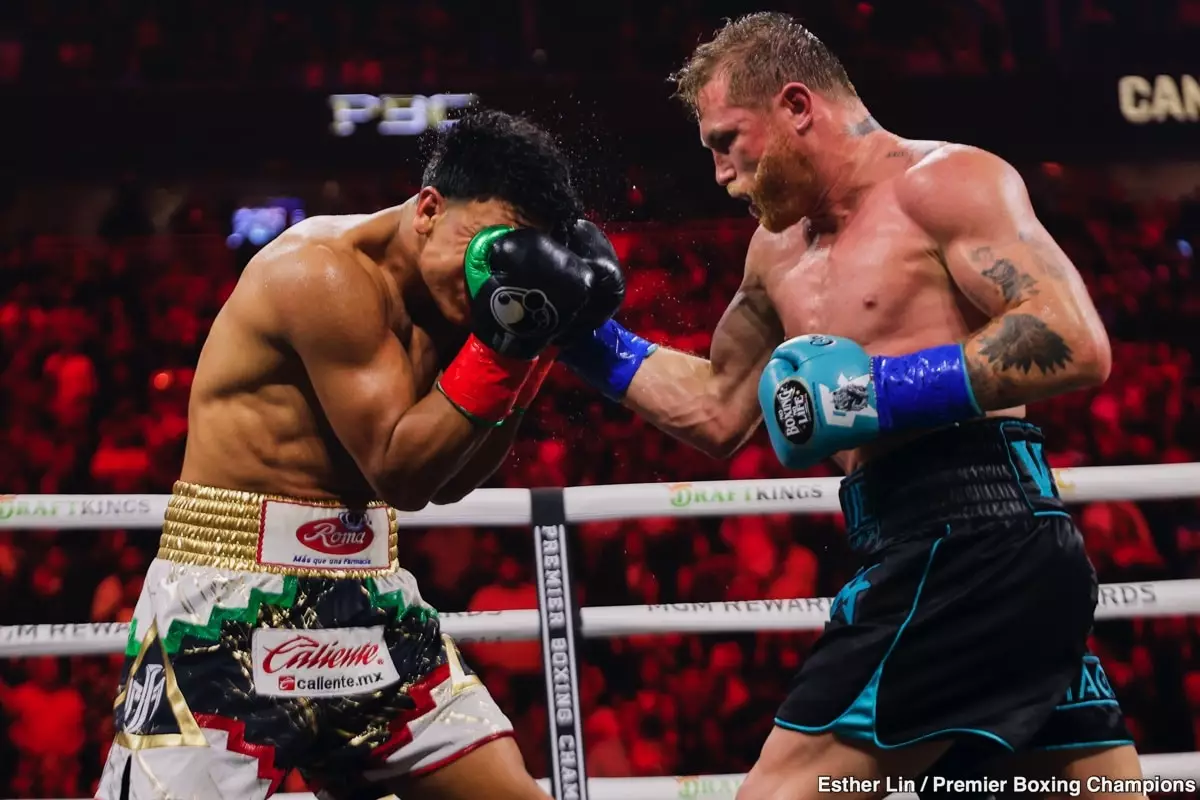Gabriel Rosado, a former world title challenger, has expressed his belief that a potential fight between Canelo Alvarez and Terence Crawford lacks sense, especially from Canelo’s perspective. With Canelo already holding the undisputed super middleweight championship, the idea of moving up two weight divisions to face Crawford raises questions about the merit and benefits of such a bout. Rosado argues that Canelo stands to gain little from such a matchup, with the risks potentially outweighing the rewards. This analysis sheds light on the complexities and challenges that both fighters would face in navigating this hypothetical fight scenario.
Rosado’s critique revolves around the asymmetrical nature of the risk-reward equation in a potential Canelo vs. Crawford showdown. While Crawford could stand to benefit significantly in terms of financial gain and reputation if he were to face and possibly challenge Canelo, the Mexican boxing sensation might find himself in a precarious position. Moving up to 168 to take on an opponent who hasn’t established himself in the super middleweight division could tarnish Canelo’s legacy if he were to struggle or face criticism for a less-than-dominant performance. This unbalanced equation raises doubts about the desirability and feasibility of such a matchup.
In the world of boxing, legacy and reputation play a crucial role in shaping a fighter’s career trajectory. For Canelo Alvarez, who has already achieved an illustrious career with multiple world titles, the decision to face a relatively unproven opponent like Terence Crawford carries significant risks. While Crawford might view this as a golden opportunity to secure a hefty payday and test his skills against one of the sport’s biggest stars, Canelo must carefully weigh the potential repercussions for his own legacy. Any misstep or underwhelming performance against Crawford could cast a shadow over Canelo’s accomplishments and raise questions about his true prowess as a multi-division champion.
Another key aspect of Rosado’s analysis pertains to the weight differentials between Canelo Alvarez and Terence Crawford. While Crawford has not yet proven himself in the super middleweight division by defeating top contenders at 168, the prospect of challenging Canelo directly raises concerns about fairness and credibility. Rosado argues that Crawford should first establish himself at the weight class by taking on formidable opponents like David Benavidez or David Morrell before seeking a high-profile bout with Canelo. By skipping this crucial step, Crawford risks being perceived as an opportunist rather than a legitimate challenger, further complicating the dynamics of a potential matchup.
Looking ahead, the boxing community eagerly awaits Canelo Alvarez’s next move and potential opponents. While names like Berlanga and Eubank Jr. have been tossed around as possible candidates for future fights, the absence of a clear contender at 168 raises questions about the direction of Canelo’s career. As Rosado points out, fighting in London or headlining marquee events might offer Canelo certain benefits, but the ultimate goal of cementing his legacy as one of the greatest boxers of his generation remains paramount. The strategic decisions that Canelo makes in the coming years will shape his legacy and impact the boxing landscape in significant ways.
The potential showdown between Canelo Alvarez and Terence Crawford highlights the complexities and challenges that both fighters would face in pursuing such a matchup. While Crawford stands to gain financially and reputation-wise from facing Canelo, the Mexican champion must carefully consider the risks and rewards of moving up two weight divisions to accommodate an unproven challenger. As the boxing world watches and waits for developments in this saga, the importance of legacy, reputation, and strategic decision-making looms large, shaping the narrative of two elite fighters in pursuit of greatness.

